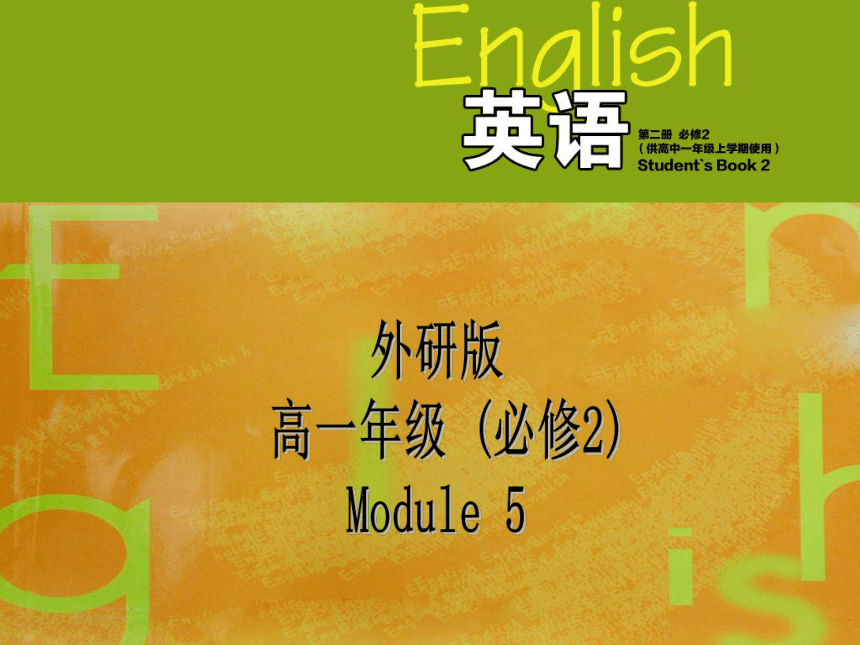
课件45张PPT。 外研版 高一年级 (必修2) Module 5Module 5 Newspapers and Magazines状语从句原因状语从句结果状语从句时间状语从句地点状语从句条件状语从句让步状语从句状语从句1. 由when, whenever, as , while, after, before, until, till, since, once, as soon as, 等引导的时间状语从句。 e.g. When the bell rang, the guard was waiting in his seat. 铃响的时候,警卫正等在座位上。时间状语从句Three months went by before Jack realized it. 杰克意识到的时候三个月已经过去了。 I waited till he had finished his task. 我一直等到他完成了他的任务。2. 由the minute, the moment, the instant, the day, the week, the year, the first time, any time, every time, each time, the last time, all the time, from the time, by the time, immediately, instantly, directly 等引导的时间状语从句。e.g. I recognized you the minute I saw you. 我一见到你就认出了你。He called on me the day he arrived. 他来的那一天就访问了我。 We were there the week it snowed so heavily. 雪下得很大的那一周我们在那里。3. 其中the minute, the moment, the instant, the second, 以及immediately, instantly, directly 表达的意思一样, 都是 “一……就……” 可替换。 e.g. You must show the gentleman in immediately he comes. You must show the gentleman in the minute /the moment/instantly he comes. Translate the following sentences. 你一按按钮,灯就会亮。 他一出现,便一片沉寂。 The lamp will light instantly you press the button. Directly he appeared there was dead silence. 4. 另外还要注意 hardly … when …, scarcely … when …, no sooner … than …的意义和用法。 “一……就……”。 通常hardly, scarcely, no sooner 位于句首, 后主句用had done,且倒装。而when, than 后面的从句用一般过去时。e.g. Hardly/scarcely had I got home when it started to rain. 我刚到家,就开始下雨了。 Hardly/Scarcely had I arrived when he called me. 我刚到他就给我打电话了。 No sooner had I reached the station than the train left. 我们刚到火车站火车就走了。5. when, while, as 引导的时间状语从句的 区别。1) “当…...时”讲, when可以和延续性动词连用, 也可以和短暂性动词连用, 而while 和as只能和延续性动词连用。e.g. Why do you want a new job when you’ve got such a good one? Sorry, I was out when you called me. Strike while the iron is hot. The students took notes as they listened. get 为短暂性动词call为短暂性动词is为延续性动词listen 为延续性动词2) when 从句的谓语动词可以在主句动词之前或之后发生或同时发生。而while 和as 从句的动词必须是和主句的动词同时发生。 e.g. When he had finished his homework, he took a rest. When I got to the airport, the guests had left. had finished 先发生got to 后发生即当主从句动作同时发生, 且从句动作为延续性动词时, 三者可互换。 e.g. When/While/As she was making a phone call, I was writing a letter. 当她在打电话的时候,我在写信。3) when 可以表示 “在那时”。 be about to do … when … had done … when … be doing … when …e.g. I was about to go out when the phone rang. 我正打算出去这时电话响了。I was on the point of reading books when someone knocked at the door. 我正在读书这时有人敲门。4) as 可以表示 “因为” “作为” “随着” “一边 …... 一边 ...... ... ...
~~ 您好,已阅读到文档的结尾了 ~~

